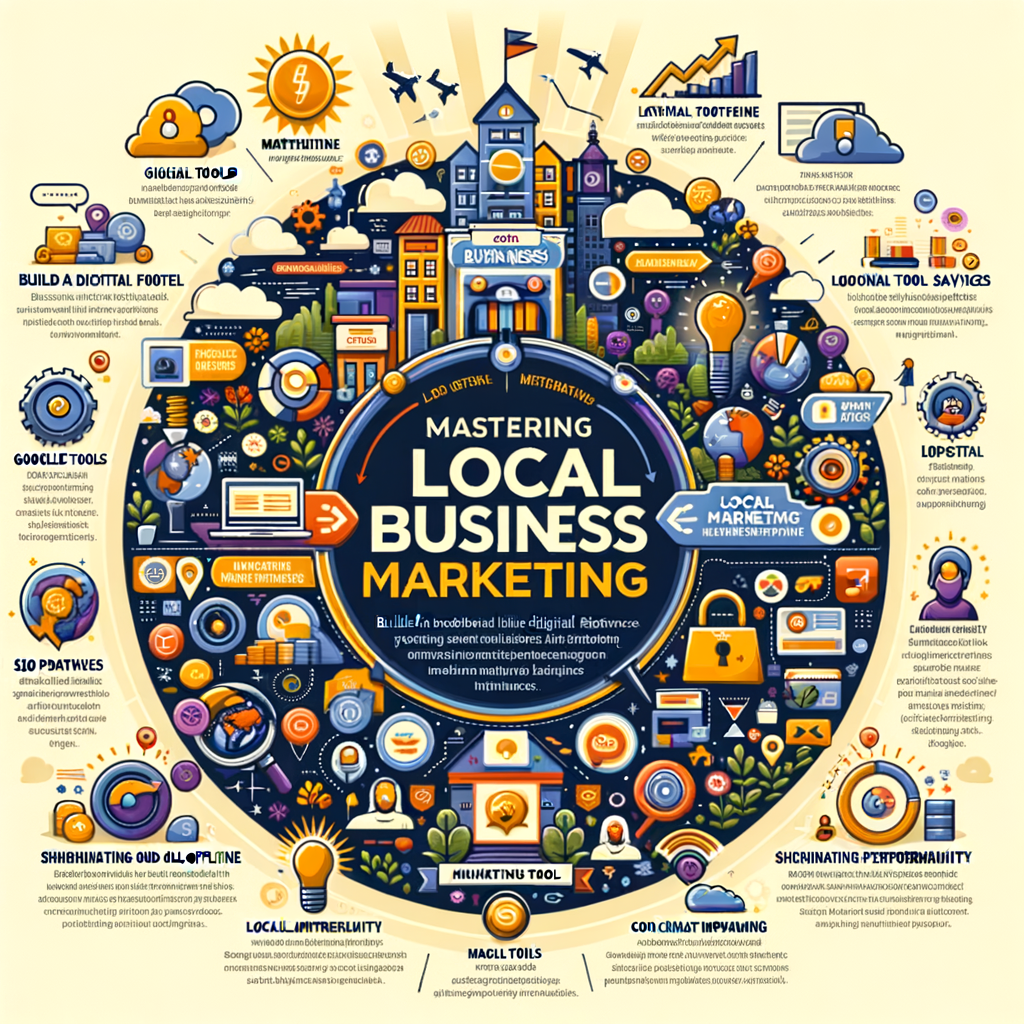Mastering Local Business Marketing: Strategies for Success
 In the ever-evolving world of digital marketing, local business marketing has emerged as a vital strategy for small and medium-sized enterprises (SMEs) aiming to capture the attention of customers in their immediate geographical area. With over three decades of experience in SEO and content writing, I’ve witnessed firsthand the transformative impact that a well-crafted local marketing strategy can have on businesses. This article aims to provide a comprehensive guide on how to effectively market your local business in today’s competitive environment.
In the ever-evolving world of digital marketing, local business marketing has emerged as a vital strategy for small and medium-sized enterprises (SMEs) aiming to capture the attention of customers in their immediate geographical area. With over three decades of experience in SEO and content writing, I’ve witnessed firsthand the transformative impact that a well-crafted local marketing strategy can have on businesses. This article aims to provide a comprehensive guide on how to effectively market your local business in today’s competitive environment.
The Importance of Local Business Marketing
At its core, local business marketing is about connecting with your community and building relationships with local customers. It’s a targeted approach that focuses on optimizing your online and offline presence to appear in local search results, thereby increasing visibility and attracting more foot traffic. In an age where consumers are increasingly looking for convenience and personalized experiences, being visible in local searches is more critical than ever.
Building a Strong Online Presence
One of the first steps in a successful local business marketing strategy is establishing a robust online presence. This means having a professionally designed, mobile-friendly website that is optimized for local SEO. Your website should include your business name, address, and phone number (NAP) on every page, preferably in a consistent format. Additionally, integrating local keywords relevant to your business and area into your content can significantly improve your visibility in local search results.
Google My Business: Your Local SEO Ally
A critical component of your online presence is your Google My Business (GMB) listing. This free tool allows you to manage how your business appears on Google Search and Maps. A complete, accurate, and optimized GMB listing can improve your chances of showing up in Google’s Local Pack, Local Finder, and Google Maps, thereby driving more traffic to your website and physical location.
Leveraging Social Media for Local Engagement
Social media platforms offer powerful tools for local business marketing. They allow businesses to engage with their community, share content related to local events or promotions, and even target ads to specific geographic areas. Creating content that resonates with your local audience can foster a stronger connection and encourage customer loyalty. Remember, the key is engagement; actively responding to comments, messages, and reviews builds trust and humanizes your brand.
Embracing Local SEO Strategies
Local SEO is a cornerstone of effective local business marketing. Beyond having a well-optimized website and GMB listing, local SEO involves creating locally relevant content, acquiring local backlinks, and ensuring your business is listed in local directories and citation sites. These actions help improve your local search rankings and visibility, making it easier for potential customers to find you online.
Keywords: The Foundation of Local SEO
Identifying and incorporating the right local keywords into your online content is fundamental. Tools like Google Keyword Planner and Moz Local can help you discover the terms people are using to find businesses like yours in your area. Including these keywords in your website’s meta titles, descriptions, and throughout your content can significantly enhance your SEO efforts.
Offline Strategies Matter Too
While digital strategies are crucial in today’s marketplace, traditional offline marketing techniques still have a place in local business marketing. Participating in community events, sponsoring local sports teams, or hosting workshops can increase your brand’s visibility and reputation within the community. Combining online and offline marketing efforts can create a comprehensive marketing strategy that covers all bases.
Monitoring Performance and Adapting Strategies
An effective local business marketing strategy is not set in stone; it requires continuous monitoring and adaptation. Utilizing analytics tools to track your online performance, customer engagement, and conversion rates is essential. This data allows you to understand what’s working, what isn’t, and where there’s room for improvement. Regularly updating your strategies based on these insights can lead to sustained growth and success.
Conclusion
Local business marketing is an ongoing process that involves a combination of online and offline efforts to connect with your local community. By building a strong online presence, leveraging local SEO, engaging with customers through social media, and not neglecting traditional marketing methods, you can create a powerful marketing strategy that drives growth and fosters long-term success. Remember, the key to effective marketing is adaptability and a willingness to evolve with the changing digital landscape.
